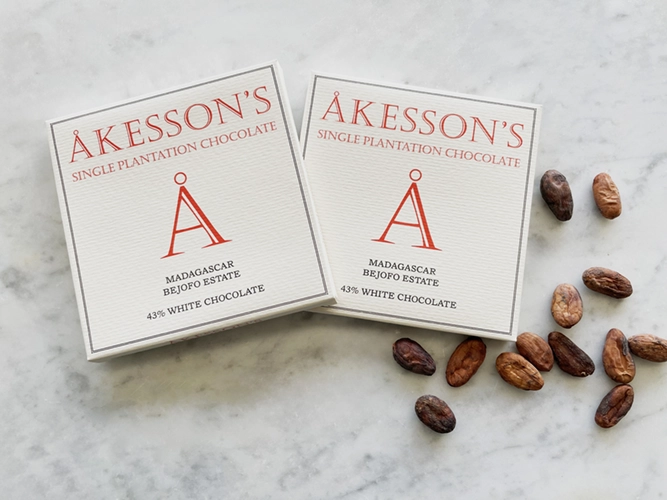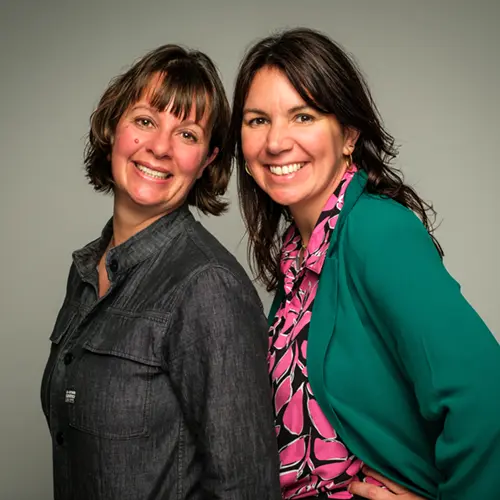Want to know what bean-to-bar chocolate is, how it is made and much more?
Read all about sustainable chocolate in our blogs.
Home " Akesson's chocolate

Sharing:
De producten van deze leverancier zijn momenteel niet beschikbaar. Zodra we ze weer kunnen inkopen, zullen ze direct in onze webshop beschikbaar zijn. Houd de shop in de gaten voor updates!
Bertil Åkesson inherited a cocoa farm in Madagascar and started producing premium cocoa organically. He sells this to the world's best chocolate makers. He has the best beans processed into Akesson's chocolate himself.
The cacao plant first received its botanical name from Swedish natural scientist Carl von Linné (*1707-†1778), who called it "Theobroma cacao" ("cacao, food of the gods"). This was Sweden's first contribution to the world of chocolate.
Like pepper or coffee, this beautiful name, cocoa, is associated by many people with exotic adventures in faraway lands. As a child, Bertil Åkesson was irresistibly drawn to the idea of travelling the world, which is how these beautiful products first caught his attention. This opportunity was given to him by his father, through whom he discovered the world of plantations in Africa at an early age.
A Swedish diplomat, Bertil Åkesson's father first worked for the embassy in Paris in 1945. Years later, his journey continued south to Cameroon, where he ran a trading company, and finally settled in Madagascar in the 1970s, after acquiring mining companies and sisal plantations.
So it is in Madagascar, on Bertil Åkesson's family plantations, that his journey through the fascinating world of cocoa, spices and other delicious natural wonders really began. There, over the years, he learned the secrets and subtleties of plantation management and development. Eventually, he specialised in fine cacao and spices, while his constant pursuit was to achieve the highest quality in a sustainable manner.
Today, his plantations in Madagascar, Brazil and Indonesia supply world-renowned chocolatiers and chefs. Working closely with these passionate artists to experience the fascinating craft of turning cocoa into chocolate or how pepper enriches recipes, he eventually launched a small and exclusive line of Akesson's chocolate and fine exotic foods.
Åkesson aims to offer its passion for tropical foods and achieve the highest possible quality in a sustainable way. "We want people to buy our Akesson's chocolate, cocoa and other fine exotic foods because of their superior quality, not because of how we grow it," Åkesson says.
Åkesson's goal is to share their passion for tropical foods, and offer the highest possible quality. All this achieved in a sustainable way. They want people to buy Akesson's chocolates because of their superior quality, not because of how we grow them.
Nevertheless, Akesson's attaches great importance to people and the environment. And this shows in the respectful way they treat people on the plantations and how they care for the environment both on the plantations in Madagascar and in Brazil, as well as their factory in France.
In Madagascar, Åkesson is certified "Fair for Life" by the IMO. The plantation is a single living organism where they try to provide a safe working environment and social habitat. Food, shelter, health, safety, freedom and spiritual activities are what the farm offers.
Åkesson, for example, has converted their estates to solar power (GAÏA Alternative Energy) and they distribute half the electricity to the nearby village where their workers live, and provide portable solar panels for the most remote areas. They also provide land to their workers so that they can be self-sufficient and grow their own rice for their families. Åkesson also contributes to the construction of schools. Finally, in a country where medical supplies are not readily available and workers easily spend up to half their income on medicine, they have organised to collect medicine in Europe and distribute it on the plantation. All this is in addition to providing the best possible compensation and integrating whole families into their communities.
In Brazil, the plantation is certified by UTZ, the world's largest programme for socially and environmentally conscious cocoa production. In May 2009, Akesson bought the plantation. This is the first step to build decent housing for their workers, with access to water, fully equipped kitchens and bathrooms and septic tanks.
They also have their own school for children under 7 years old and have renovated the 4-km road so that the local bus can pick up older children living in the nearest town every morning.
All Åkesson's workers are officially registered and the extra amount they pay to the state is redistributed. This sounds obvious in Europe or America, but it is still very rare in Brazil, where people traditionally receive a share of production as salary, which in itself is not sustainable because it does not guarantee income for retirement or social security, although the system works in a country like Brazil.
In France, Åkesson supported the activities of the Jewish association "Oeuvre de Secours aux Enfants" in Paris, founded in 1912 by Jewish doctors in St Petersburg. All their fine exotic foods are packaged there, and for each packaged item (jars or sachets, even 70 cents for tins), 30 cents are given to the workers. The association houses 65 adults with disabilities, mainly mental and motor disabilities, and provides them with appropriate work and management, giving them financial and social independence. Workers can complete internships or work a few days a week or occasionally.

Want to know what bean-to-bar chocolate is, how it is made and much more?
Read all about sustainable chocolate in our blogs.